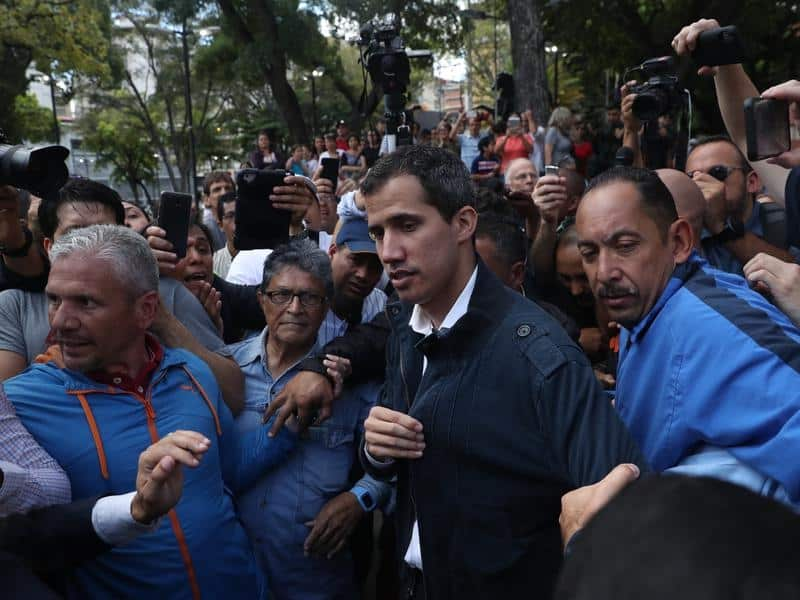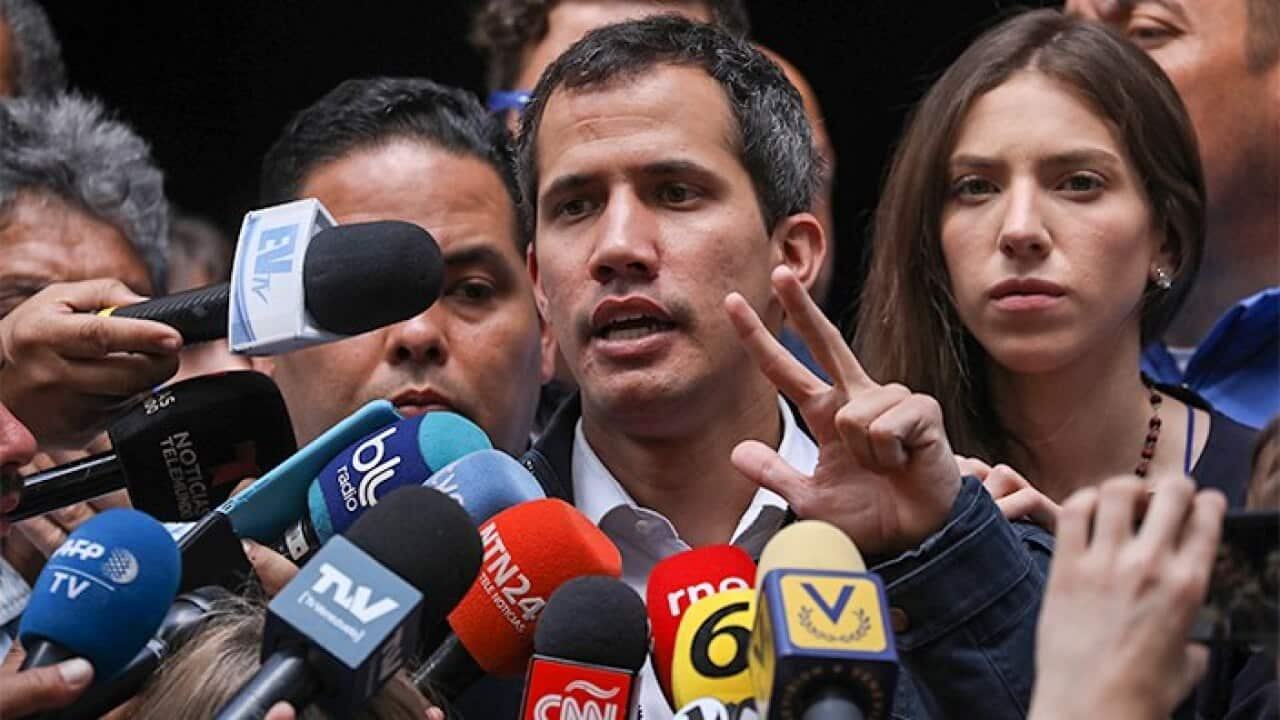At least 40 people are believed to have been killed in Venezuela's recent violence, including 26 shot by pro-government forces, five killed in house raids and 11 during looting, UN human rights spokesman Rupert Colville says.
He said more than 850 people were detained between January 21 and 26, including 77 children, some as young as 12.
On January 23, 696 people were detained across the country, the highest daily number of detentions in Venezuela in 20 years.
The Trump administration warned of "serious consequences" after Venezuela's government moved to freeze the bank accounts of self-proclaimed interim president Juan Guaido on Tuesday, while state-run oil company PDVSA sought to sidestep US sanctions.
The sweeping sanctions on PDVSA, announced on Monday and aimed at curbing crude exports to the United States and driving President Nicolas Maduro from power, were the strongest measures yet against the 56-year-old former union leader who has overseen economic collapse and an exodus of millions of Venezuelans in recent years.

The measures triggered higher global oil prices, angry responses from China and Russia and the first serious moves against Guaido since he challenged Maduro's claim on the presidency last week.
Venezuelan Attorney General Tarek Saab said he had asked the Supreme Court to open a preliminary investigation into Guaido, accusing him of helping foreign countries to interfere in internal matters. He also asked the court to impose a travel ban on the 35-year-old leader and to freeze his bank accounts.
Imprisonment threat
In response, US national security adviser John Bolton warned of "serious consequences for those who attempt to subvert democracy and harm Guaido," in a tweet that described Saab as the "illegitimate former Venezuelan Attorney General."
The United States and several other countries have recognised Guaido as Venezuela's legitimate head of state and denounced Maduro as a usurper. Maduro, sworn in on January 10 for a second term after disputed elections last year, accuses Guaido of staging a US-directed coup against him. Maduro is backed by a number of countries, including Russia.
Guaido said on Tuesday he did not underestimate the threat of imprisonment but did not believe it was "anything new." Many opposition leaders have been imprisoned in the South American nation.
"We are here. We will keep acting and working to confront the humanitarian crisis," Guaido told a news conference.
Most experts believe the sanctions and other measures against Maduro will encourage him to step down only if he loses the support of the powerful military, which until now has been mostly loyal to the leftist ruling party founded by late President Hugo Chavez.
Maduro appeared on a television broadcast from a military base on Tuesday, praising the soldiers' loyalty.
As a lawmaker who heads the National Assembly, Guaido has immunity from prosecution unless ordered by a top court. However, the Supreme Court is loyal to Maduro and is expected to quickly open the investigation.
The US State Department said on Tuesday it had certified Guaido's authority to control certain assets held by the Federal Reserve Bank of New York or other U.-insured banks, including government and central bank accounts.
Venezuela has sunk into economic and political turmoil under Maduro's socialist government, with inflation seen rising to 10 million percent this year.
The loss of revenue from the United States, the No. 1 buyer of Venezuelan crude, is sure to further hamper the government's ability to import basic goods like food and medicine, exacerbating a humanitarian crisis that has prompted more than 3 million people to leave the country in recent years.

